Course Outcome
SEMESTER I
• To apply the methods of a research project.
• To understand the principles behind volumetry.
• To analyse the characteristics of different elements.
• To distinguish between different acid base concepts.
• To analyse the stability of different nuclei.
SEMESTER II
- To understand the importance and the impact of quantum revolution in science.
- To understand and apply the concept that the wave functions of hydrogen atom are nothing but atomic orbitals.
- To understand that chemical bonding is the mixing of wave functions of the two combining atoms.
- To understand the concept of hybridization as linear combination of orbitals of the same atom.
- To inculcate an atomic/molecular level philosophy in the mind.
SEMESTER III
• To understand the concepts of thermodynamics and it’s relation to statistical thermodynamics.
• To apply symmetry operations to categorize different molecules.
SEMESTER IV
• To apply the concept of stereochemistry to different compounds.
• To understand the basic concepts of reaction mechanism.
• To analyse the mechanism of a chemical reaction.
• To analyse the stability of different aromatic systems.
SEMESTER V
• To understand basic processes of metallurgy and to analyse the merits of different alloys.
• To understand the applications of different inorganic polymers.
• To analyse different polluting agents.
• To apply the principles of solid waste management
• To understand the importance of ethers and epoxides.
• To apply organometallic compounds in the preparation of different
functional groups.
• To apply different reagents for the inter conversion of aldehydes,
carboxylic acids and acid derivatives.
• To apply active methylene compounds in organic preparations.
chemical and physical processes.
• To characterise different molecules using spectral methods.
• To understand various phase transitions and its applications.
SEMESTER VI
• To distinguish between lanthanides and actinides.
• To appreciate the importance of CFT.
• To understand the importance of metals in living systems.
• To distinguish geometries of coordination compounds
techniques.
• To understand the basic structure and tests for carbohydrates.
• To understand the basic components and importance of DNA.
• To understand the basic structure and applications of alkaloids and
terpenes.
• To distinguish different pericyclic reactions.
• To understand the importance of colligative properties.
• To relate the properties of materials/solids to the geometrical properties and
chemical compositions.
• To appreciate the importance of green approach in chemistry.
• To understand the uses and importance of computational calculations in molecular design.
• To understand the role of chemistry in human happiness index and life expectancy.
• To understand the important characteristics of polymers such as average molecular weight, glass transition temperature,
viscoelasticity and degradation.
• To appreciate the importance of processing techniques.
• To characterise different commercial polymers and to understand the
significance of recycling.
PRACTICALS AND PROJECT
• To develop skill in setting up an experimental method to determine the physical properties.
• To understand the principles of Refractometry,Potentiometry and Conductometry
• To develop talent in organic preparations to ensure maximum yield.
• To apply the concept of melting or boiling points to check the purity of compounds.
• To analyse and characterise simple organic functional groups.
• To analyse individual amino acids from a mixture using chromatography.
quantitative analysis.
• To understand the principles behind gravimetry and to apply it in
quantitative analysis.
• To understand the principles behind colorimetry and to apply it in
quantitative analysis.
analysis.
• To understand the principles behind inorganic mixture analysis and to apply it in quanlitative analysis.
• To analyse systematically mixtures containing two cations and two
anions.
• To apply the scientific method in life situations.
• To analyse scientific problems systematically.
FYUGP- SEMESTER I
1.Understand the role of chemistry in science and scientific research withemphasis on analytical data evaluation
2.Conceptualize and predict chemical bonding, molecular structures using dipole moment, hybridisation, and MO Theory
3. Develop a basic understanding of the extraordinary properties of nanomaterials and its applications.
4. Apply the concepts of lab safety measurements and volumetric analysis
5. Enable students to develop analytical skills in inorganic quantitative volumetric analysis.







